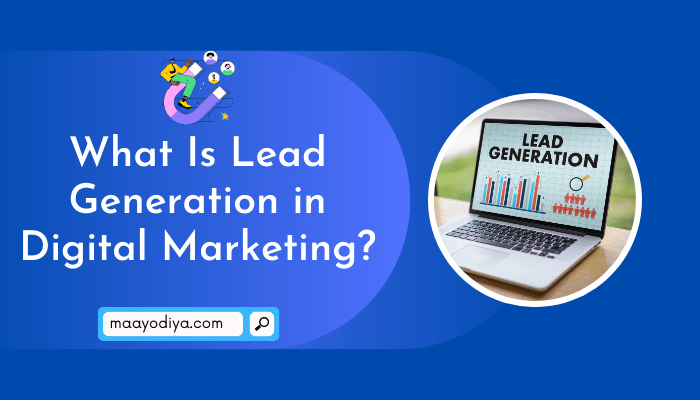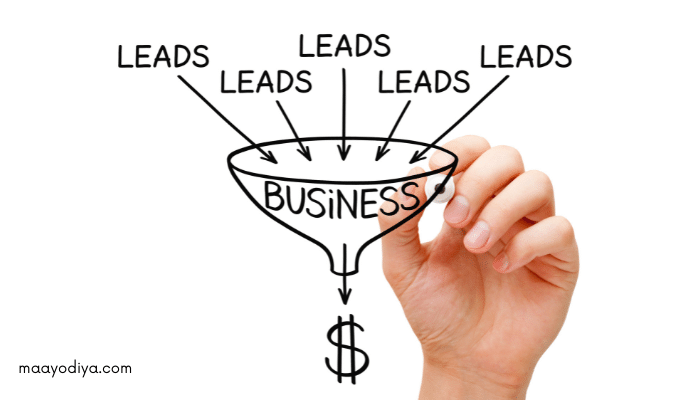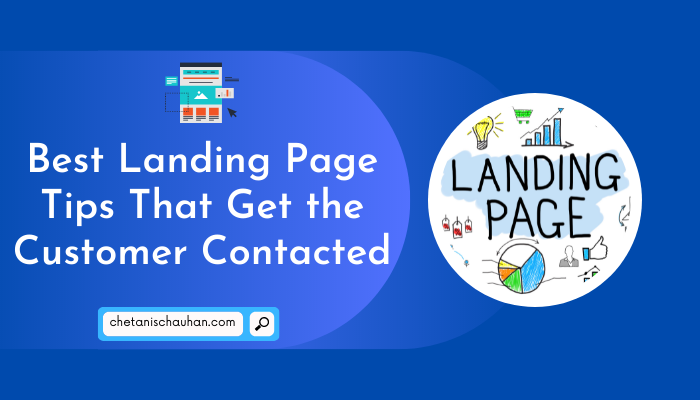
Let’s know about what is lead generation in digital marketing. It’s the process of creating new leads for your business. Generally, this is done by figuring out your target market and then targeting them through the digital channels they use the most, like social media or email. In this article, we break down how lead generation works in more detail and offer some tips on how you can get started with it.
Definition of Lead Generation
Lead generation is the process of generating leads, or potential customers, for a business. In digital marketing, lead generation typically occurs through the use of online forms or landing pages, which are used to collect contact information from potential customers. This contact information is then used to follow up with the potential customer and attempt to sell them a product or service.
There are a number of ways to generate leads online, including through SEO-optimized content, pay-per-click advertising, social media marketing, and email marketing. Lead generation is an important part of any digital marketing strategy, as it helps businesses to identify and target potential customers.

Types of Lead Generation
There are a few different types of lead generation that are commonly used in digital marketing. These include organic lead generation, paid lead generation, and social media lead generation.
Organic lead generation is the process of generating leads through organic means, such as SEO or content marketing. Paid lead generation is the process of buying leads from a third-party provider. Social media lead generation is the process of generating leads through social media channels, such as Facebook or Twitter.
-
Generating Leads from Your Website
If you’re running a business with a website, you should be doing everything you can to generate leads from your site. Fortunately, there are a number of things you can do to make your site more effective at generating leads. In this blog post, we’ll go over some of the most important things you can do to generate leads from your website.
First, make sure your site is designed in a way that’s easy for visitors to navigate. If people can’t find what they’re looking for on your site, they’re not going to stick around long enough to become a lead.
Second, have a strong call to action on every page of your site. Whether you’re asking people to sign up for your email list or download a white paper, make sure it’s clear what you want them to do and why they should do it.
Third, use effective lead capture forms. Make sure your forms are short and easy to fill out, and that they’re placed in strategic locations on your site.
Finally, track your results so you can see what’s working and what’s not. By constantly testing and tweaking your website, you’ll eventually find the formula for generating the most leads possible from your website
-
Generating Leads from Social Media
As digital marketing continues to grow and evolve, so too does the concept of lead generation. In the most basic terms, lead generation is the process of attracting and converting strangers into customers or clients.
Social networking is one of the most effective strategies to create leads. By creating engaging and informative content, you can attract a large number of potential customers to your brand’s page or website. Once you have their attention, you can then work on converting them into leads by providing them with an offer or discount that they can’t resist.
Of course, social media isn’t the only way to generate leads. Other effective methods include email marketing, search engine optimization, and pay-per-click advertising. No matter which methods you choose to use, the goal is always the same: to attract strangers and turn them into customers or clients.

-
Generating Leads from Email Marketing
One of the most efficient ways to get leads is through email marketing. By sending out regular emails with valuable content, you can attract potential customers and get them interested in what you have to offer.
To maximize your email marketing efforts, make sure to include a strong call to action in each message. This will encourage recipients to take the next step and visit your website or contact you to learn more about your products or services.
In addition, be sure to segment your email list so that you are sending messages to those who are most likely to be interested in what you have to offer. This will help ensure that your messages are being received by those who are most likely to convert into leads.
Conclusion
Lead generation in digital marketing is the process of identifying and nurturing potential customers until they are ready to make a purchase. By using various online tools and strategies, businesses can reach out to potential leads, build relationships, and eventually turn them into paying customers. While it takes time and effort to generate leads, the payoff can be huge for businesses that are successful at it. If you’re looking to grow your business, lead generation should be a key part of your digital marketing strategy.



Lucaina
August 23, 2022I am really thankful to the author of this site who has shared this great piece of writing at
at this time.